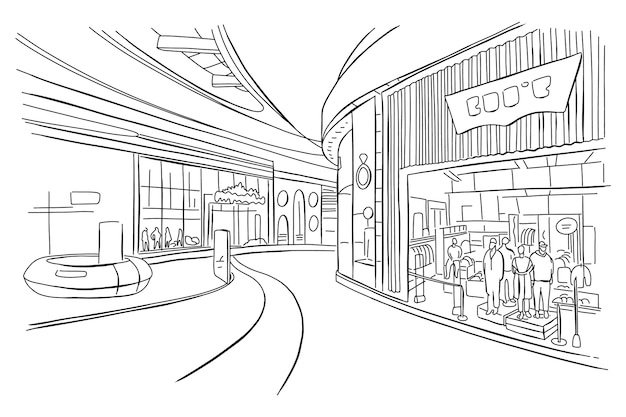In a fast-paced, increasingly connected world, peace can seem almost impossible to find. Notifications for days, schedules packed to the minute and an endless number of things we’re responsible for – no wonder almost all of us want a chance to disconnect. Enter the jigsaw puzzle — a timeless favourite that offers relaxation while stimulating your grey cells!
The Mental Benefits of Jigsaw Puzzles
Completing a jigsaw puzzle isn’t just an entertaining hobby; it’s also an exercise for the brain. As you concentrate on joining pieces, your brain is hard at work making critical thinking decisions and pattern comparison linkages. This mental work may be low-key, but it’s the right kind and keeps your brain sharp and nimble. Research has even indicated that frequent puzzle-solving can help to boost cognitive function, aid memory retention and slow mental decline in old age.
As opposed to overwhelming the mind with inputs, certain activities do, jigsaw puzzles provide a quiet challenge. You practice focused attention without the distraction of deadlines or digital dings, and it creates a meditative state that promotes mindfulness.
Stress Reduction Through Mindful Engagement
This is one of the reasons why jigsaw puzzles are so relaxing. As you shift through pieces and look for matching edges, constructing the whole image one jagged piece at a time, your mind is elsewhere. It’s a bit repetitive but fulfilling, and it allows me to feel a degree of control over my situation.
For many puzzle lovers, the experience is “therapeutic.” Focusing intently on one pleasurable task in this way will lower levels of cortisol, the hormone most closely tied to stress.
A Creative Outlet for All Ages
Jigsaw puzzles are both creative and stimulating for the mind. Each puzzle offers a visual narrative or depicts a generic scene of life’s absurdities. The finished sack allows them to feel art, scenery or detailed patterns in a tactile way. And they offer so many developmental benefits: Helping children develop fine-motor skills and spatial awareness, to start, but also providing adults with mental gymnastics and creative satisfaction.
Whether it’s a scenic landscape, an iconic painting or a custom photo puzzle, the act of piecing together images encourages imaginative thinking. It’s an easy little hack to bring creativity into your day with zero pressure and zero expectations.
Social Connection Through Puzzle Solving
Relaxation doesn’t always need to be done alone. Jigsaw puzzles are also a great opportunity for friends and family to cooperate. Families, friends or even office mates can come together to collectively solve a puzzle. This engaging event encourages cooperation, communication and teamwork in a relaxed, fun setting.
Collaborating on a puzzle induces a sense of accomplishment and togetherness, which can enhance mood and improve well-being. Puzzles are naturally anti-stress, in that they offer a sense of community and common purpose that is not found in fast-paced digital entertainment or competitive scenarios: these require patience and teamwork, both of which make situations free of stress and care.
Flexibility and Accessibility
Another reason that jigsaw puzzles are great for relaxation is the flexibility that they offer. Jigsaw puzzles come in a variety of levels of difficulty, sizes, and themes, and it is very easy to choose a puzzle depending on your mood, your schedule, or your skill level. You can take a little time to work on a 100-piece puzzle – perfect for a few minutes of a mental break, or tackle a 2,000-piece puzzle, which may take you a few days to solve.
Puzzles can also be done anywhere – on a coffee table, in the park, or while travelling. All it takes is a flat surface and the pieces in front of you. This accessibility makes puzzles a great screen-free way to take a break from living in a digital world.
A Sense of Achievement
There is a deep sense of satisfaction that comes from putting the last piece of a jigsaw puzzle into place. This real-life conclusion elevates mood and provides a minor but real achievement. Many tasks or experiences we have a sense of feeling never finish or are vague; puzzles present a more concrete payoff- a clarified picture that is now complete, and the sense of accomplishment cannot be replicated in any other way.
Even partial progress on a puzzle is satisfying. When you finish a section, recognise a pattern, or finish what you found particularly difficult strengthens your resolve and capacity for patience—both of which are transferable to everyday life and growth in a personal capacity.
Combining Relaxation With Fun
Jigsaw puzzles are just plain fun. They let you step back from screens, slow down, and engage in a leisure activity that is satisfying, captivating, and often an enjoyable throwback to your childhood. Lots of people can recall fondly solving jigsaw puzzles during their childhood, and coming to this activity in adulthood combines a sense of relaxation, joy, and playfulness.
Puzzles can also be personalised to your family photos or favourite paintings, and they make the leisure activity not only enjoyable, but meaningful as well. Being connected to your own photo, painting, or picture book adds a unique and emotional layer to the activity and adds to the therapeutic nature that puzzle-solving already carries.
Tips for Maximising Relaxation With Jigsaw Puzzles
- Pick an Appropriate Puzzle: Choose a puzzle difficulty according to your mood. You may enjoy a tricky puzzle all weekend long, or use an easier puzzle for a relaxing, quick evening.
- Design a Good Atmosphere: Good lighting, a comfortable table, and slow and soft music or silence can make the puzzle a calming process.
- Take a Pause: Every so often, step away for a plan refresh and to avoid any frustration with the puzzle.
- Make it a Social Activity: Feel free to include family/friends to create a collaborative experience.
- Honour Your Completed Puzzle: Hang completed puzzles, frame them or simply put them away to celebrate the effort and discipline it took, and keep them as a springboard for the future.
Conclusion
Jigsaw puzzles are not merely an activity—they are an avenue for stimulation, mindfulness, and stress reduction. Whether enjoyed independently or with friends and family, the level of difficulty, creativity, and accomplishment that jigsaw puzzles provide is unique. By simply spending time working on puzzles, you can take a break from daily life, improve your cognitive health, and experience a simple yet meaningful pleasure that is uncommon.
In an over-complicated world, jigsaw puzzles can re-ground you in the benefits of slowing down, being mindful, and enjoying the process—piece by piece.



